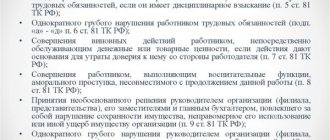How is alimony assigned?
The legislation allows parents to independently establish the procedure for payments for child support (Chapter 16, Family Code of the Russian Federation). The agreement is drawn up in writing and certified by a notary. A notarial agreement in legal meaning is equivalent to a writ of execution (Article 98, RF IC)
In the absence of documents on a voluntary order, alimony is collected in court.
Compulsory collection is divided into the following forms:
- Equity (percentage of earnings).
- Fixed (a certain amount of money).
- Combined (payments are assigned simultaneously in shared and fixed form).
The recovery option and the amount of alimony are determined based on the family and financial status of the parties.
The minimum amount of payments ordered in court is established by the norms of the Family Code of the Russian Federation (Article 81).
| Amount of alimony | Assignment condition |
| a quarter of earnings (25%) | one child |
| a third of the salary (33%) | two children |
| half of total income (50%) | three or more children |
The amount of shares collected by the court may be reduced or increased depending on the circumstances of a particular case.
In what cases is an order issued?
A court order is a court order issued on a petition for the recovery of sums of money (Article 121, Code of Civil Procedure of the Russian Federation). The magistrate makes a decision to withhold alimony without notifying the defendant (Article 126, RF IC).
The writ procedure is allowed if the following conditions are met:
- the payer’s income is officially confirmed;
- the defendant has no other obligations to pay alimony;
- there is no dispute about paternity;
- the claimant knows the defendant’s residential address and place of work.
If the debtor does not have a regular income, or several demands are made simultaneously (for example, to determine the place of residence of children and the assignment of payments), the claimant must file a claim with the court.
In a simplified procedure, a shared form of alimony is used.
Collection of payments in the form of a fixed sum of money is possible only through legal proceedings.
A court order has been received. What to do with him?
In practice, there are often situations when, after a court has made a decision, the debtor decides to voluntarily transfer or transfer to the recipient the amounts accrued by the court. In such cases, there is no need to take a court order anywhere. However, the original of this document must still be preserved in case the debtor at some point changes his mind and ceases to fulfill his obligations to support the children.
If the debtor initially refuses to pay, then immediately after receiving the court order, the plaintiff must contact the bailiffs. In addition to the original order, the bailiffs will need to provide a statement written by the recipient of alimony, and you can also attach copies of other documents or information that will help you quickly find the debtor, establish his income and existing property.
This is important to know: Is it possible to foreclose on part of an indivisible thing?
The application submitted to the bailiff service must contain the following information:
- Full name, registration address and place of residence of the applicant, his passport details, contact phone number and email address if available;
- Full name, registration address and place of residence of the debtor, his contact numbers, passport details and other available information;
- The operative part of the order;
- Bank details of the applicant, according to which the transfer of monetary penalties (alimony) will be carried out;
- Date and signature of the applicant.
Documents can be taken to the SSP in person or through a representative, or they can be sent by mail, but in this case, it is better to do this in a valuable letter with a list of the contents and notification of receipt by the addressee.
By the way, you can also ask a judge to transfer a court order. In this case, the plaintiff will not have to carry the documents to the bailiffs himself. The judge will send the order signed with his enhanced qualified signature electronically.
What does a court order look like?
The content of the court order is established in Article 127 of the Civil Procedure Code of the Russian Federation. The order has both the properties of a court decision and a writ of execution.
The document reflects:
- full name of the court district and details of the magistrate;
- unique civil case number and date of acceptance;
- personal data of the claimant – last name, first name, patronymic (without abbreviations), residential address;
- information about the payer specified in the application (last name, first name, patronymic, residential address, passport details, position and place of work);
- information about the child in whose favor the payments are made - date of birth, last name, first name, patronymic (without abbreviations);
- amount of alimony;
- start date of deductions;
- collection periods.
The court order is drawn up in two copies. The document issued to the claimant must be marked with the date of entry into legal force. A copy of the judicial act is sent to the person from whose wages deductions will be made.
Sample court order for the collection of alimony
| Sample court order |
We are drawing up an application for a court order to collect alimony
Prepare documents confirming the grounds for collecting alimony. This is a certificate of marriage, birth of children, divorce (when the union is dissolved). The birth certificate of each child must indicate the parent from whom child support is being collected. Otherwise, you will have to file a lawsuit to establish paternity.
Not only parents have the right to demand the recovery of child support by court order. But also other persons with whom the child lives and who support him. Therefore, a certificate from the housing authorities about the child’s residence with the applicant, for example, about family composition, etc., will be useful.
To prove the absence of deductions under writs of execution, you can print the data of the bank of proceedings against the debtor from the FSSP website.
An application requesting a court order to collect alimony is drawn up in writing. Its content is strictly regulated in Art. 124 Code of Civil Procedure of the Russian Federation. The parties are called the claimant and the debtor. Review of documents falls within the competence of the magistrate at the place of residence of the applicant or debtor (jurisdiction in civil cases). This issue is decided by the person submitting the application at his own discretion.
By the way, indicate the place and date of birth, as well as the place of work of the debtor (if known). This information must be reflected in the court order. The collection of alimony for minor children is not subject to state duty.
How to get a court order for alimony
According to the rules enshrined in Article 28 of the Code of Civil Procedure of the Russian Federation, claims must be sent to the court at the place of registration of the defendant. The law makes an exception for requests for alimony. The applicant is given the right to apply to the court at his place of residence (clause 3, article 29, Code of Civil Procedure of the Russian Federation).
You can submit documents to withhold funds during a personal visit to the court site or by registered mail via Russian Post.
How to make an application
A court order is issued on the basis of a petition for alimony payments. The content and sample of an application for the issuance of a court order are established by the norms of Article 124 of the Code of Civil Procedure of the Russian Federation.
The petition states:
- name and address of the court site;
- applicant’s details – last name, first name, patronymic (without abbreviations), residential address;
- information about the debtor - last name, first name, patronymic (without abbreviations), date and place of birth, residential address, place of work;
- information about children – last name, first name, patronymic (in full), date of birth;
- the basis for the assignment of alimony (lack of financial support from the defendant);
- reference to legislative norms (Article 81, RF IC);
- demand for recovery of funds in shares of wages);
- Date of preparation.
The application is signed by the claimant. If there is no personal signature in the document, the magistrate returns the petition to correct the deficiencies.
Application for issuance of a court order for the collection of alimony (sample)
| Application for a court order to collect alimony |
What documents should I attach?
The request for payment must be confirmed.
The following must be attached to the application:
- a copy of the child’s birth document (for minors over 14 years of age, a copy of the passport will be required);
- a copy of the claimant's passport;
- copies of documents on marriage or divorce;
- certificate (extract) about the joint residence of children with the applicant.
The legislation exempts the claimant from the mandatory payment of state duty (clause 2, article 333.36, Tax Code of the Russian Federation).
Documents about the plaintiff’s financial condition (salary certificates, bank statements) can be attached to the application.
Where to submit an order for alimony?
The current legislation on enforcement proceedings gives the claimant the right to independently submit a writ of execution in the form of a court order to the debtor's employer. When exercising this right, the accounting department of the enterprise or organization where the debtor works will necessarily deduct the required amount of alimony and transfer it to the account.
Also, a court order can be independently submitted by the claimant:
- to an educational institution - if the payer receives a scholarship;
- to the pension fund - if the paying parent receives a pension.
There is no need to hand over the writ of execution to the payer-individual entrepreneur so that he can make the calculations himself. It is better to entrust this issue to the bailiffs, this will avoid the deliberate loss of the writ of execution (order) and strengthen control over the completeness of payment of alimony.
When the alimony-paying parent does not have an official source of income, the alimony payer does not work and it is impossible to transfer the sheet directly to the employer - submit the documents to the FSSP.
To send an order for alimony to the bailiffs, you need to draw up a simple application to initiate enforcement proceedings.
A sample application is posted below.
The bailiff will accept the order for proceedings, open a collection case and begin to take measures to search for the debtor’s property and funds.
Example. The alimony payer, Ivanov, was working in a municipal institution at the time the court order was issued. The claimant, Maria I., his ex-wife and mother of the child, filed a court order at her ex-husband’s place of work on her own. For two years, alimony was regularly paid, then Ivanov quit.
The order was returned to his ex-wife. Ivanov convinced her that he would voluntarily pay alimony, since he did not yet plan to work officially. He paid alimony irregularly and accumulated arrears for 5 months. The claimant submitted an order to the FSSP for forced withholding of funds for the child.
Order received - what next?
One of the advantages of the order of alimony is the accelerated review period (5 working days). The document comes into force 10 calendar days from the date of its delivery to the debtor.
At the request of the claimant, after the order has entered into legal force, the court may send documents for execution.
If the payer’s place of work is known, the court order can be sent to the employer (or to the place of study, if the debtor receives a scholarship).
Withholding of funds from the debtor's salary is carried out on the basis of an application indicating:
- name of company;
- personal data of the claimant;
- information about the existence of a court order (when and by whom it was issued);
- account details for transferring alimony.
Documents can be delivered in person or sent by registered mail.
If the debtor lives in another city or hides his place of work, the court order must be submitted to the FSSP unit.
Enforcement proceedings are initiated at the request of the claimant.
The application contains the following information:
- name of the FSSP department;
- information about the applicant (last name, first name, patronymic, contact details);
- data of the court order (when and by whom it was issued, case number);
- information about the debtor (last name, first name, patronymic, telephone number, residential address, place of work);
- amount of alimony and terms of collection;
- Bank account details for transferring payments.
| Application for initiation of enforcement proceedings |
Enforcement proceedings are opened no later than 3 days from the moment the documents are received by the bailiff service unit (Article 30, Federal Law No. 229-FZ “On Enforcement Proceedings”).
The procedure for collecting alimony by court order by a bailiff includes establishing the payer’s place of work. If necessary, an FSSP official conducts a search for the debtor’s property, which may be subject to foreclosure.
Results
The court order can be transferred for execution and collection of alimony...
- to the accounting department at the place where wages, scholarships, pensions, social benefits, and other income are calculated;
- to the Bailiff Service at the place of residence of the alimony payer.
The recipient of alimony payments must submit to the authorized official an application for the calculation and withholding of funds, attaching a court order to it.
Lawyers advise not to delay the process of forced collection of alimony and to entrust the case to a bailiff or an accountant of an enterprise (institution, organization) as soon as possible. Oddly enough, executing a court order can be an even more complex process than a trial. Especially if the payer begins to hide income and refuses to make payments for the child. Or if there are violations on the part of the administration of the enterprise (organization, institution) - violation of deadlines, errors in calculations, loss of documentation.
If you encounter difficulties in the process of interaction with officials, if you need legal assistance or advice, you can always seek free legal advice from the lawyers of our portal.
Attention!
- Due to frequent changes in legislation, information sometimes becomes outdated faster than we can update it on the website.
- All cases are very individual and depend on many factors. Basic information does not guarantee a solution to your specific problems.
That's why FREE expert consultants work for you around the clock!
- via the form (below), or via online chat
- Call the hotline:
- Moscow and the Region
- St. Petersburg and region
- FREE for a lawyer!

By submitting data you agree to the Consent to PD Processing, PD Processing Policy and User Agreement.
Anonymously
Information about you will not be disclosed
Fast
Fill out the form and a lawyer will contact you within 5 minutes
Tell your friends
Rate ( 2 ratings, average: 5.00 out of 5)
Author of the article
Irina Garmash
Family law consultant.
Author's rating
Articles written
612
In what cases will an order be refused?
The most common reason for refusing to issue a court order is a violation of the requirements of Article 122 of the Code of Civil Procedure of the Russian Federation.
The magistrate returns the application for the collection of alimony if:
- paternity of the child has not been officially established;
- a request for deductions in the form of a fixed amount of money has been declared;
- the debtor is already paying funds to support another child (or other dependent).
In such cases, the applicant is explained the right to file a claim in a district (city) court of general jurisdiction.
Another common reason for the return of an application is the lack of documents confirming the requirements. Also, the application for an order will be refused if the applicant asks to recover funds for the past period.
When is a court order issued?
Writ proceedings are a simplified procedure for collecting alimony, used when there are no disagreements between parents regarding the payment of alimony. In particular, for a magistrate to accept an application for an order, you must:
- no dispute about paternity;
- presence of confirmed paternity;
- availability of information (at least from the claimant’s words) that the alimony payer has a permanent income.
If the above conditions are met, the magistrate will review the application within 5 working days and issue a court order. But lawyers also do not advise applying for an order if the debtor categorically disagrees with his obligation to pay alimony.
If you disagree with the issued order, the claimant can, without moving, emphasizing only his disagreement, achieve the cancellation of the court order.
If the debtor agrees with everything, the court order has entered into force - it is sent to the collector. And now the claimant needs to decide what to do with it and where to take the court order for the collection of alimony.
Important! The law does not indicate that if the debtor disagrees with the procedure for collecting alimony, an order cannot be demanded. But if the order is issued and the debtor wants to cancel it, the claimant will only waste time. The judge will cancel the order, clarify the right to file a claim in the magistrate’s court, and everything will have to start all over again.
If you are firmly convinced that the debtor will resist and will not agree with the order, file a claim immediately!
How can you cancel a court order?
A significant disadvantage of writ proceedings is the simple procedure for canceling an order.
No later than 5 working days from the date of issuance, a copy of the judicial act is sent to the debtor. Within 10 calendar days from the date of receipt of the copy, the payer has the right to file objections regarding the execution of the document (Article 129, Code of Civil Procedure of the Russian Federation).
The reason for canceling a judicial act may be:
- disagreement with the amount of deductions;
- the debtor's health status (serious illness or disability);
- unreliability of the recipient (the mother does not care about the children);
- provision by the claimant of false information (for example, the father actually pays the costs of food and clothing, but the application states that the defendant does not participate in the maintenance of the child).
The petition is drawn up in any form. Copies of objections are sent to the claimant and to the FSSP department.
If the deadline for filing objections is not violated, the magistrate cancels the order to withhold alimony. In this case, the judge does not evaluate the defendant’s arguments. In the future, the dispute over the recovery of funds for the child is resolved through litigation.
The determination to cancel the order is sent to the claimant within 3 working days from the date of issuance.
Where should the court order be sent?
So, there is a court decision, there is also a legal basis for deducting alimony. Where to submit a court order for alimony? There are several options:
- if the payer studies at a university, then to the dean’s office of the educational institution;
- if he works, then to the accounting department of the enterprise where he is employed.
Where to file a court order for the collection of alimony if the payer does not officially work? In this case, you need to contact the bailiffs - the territorial branch of the FSSP at the payer’s place of residence. They will find out what income the debtor has and from what property the amount can be withheld.
When contacting the bailiff service, you will also need to write an application to initiate enforcement proceedings. Sample:
The application must be accompanied by:
- court order;
- a copy of the claimant's passport;
- a copy of the child's birth certificate;
- a copy of the bank agreement or simply details for depositing money.
After this, the bailiff opens an enforcement case and the amount determined by the court will be withheld from the income. The payer's evasion of his responsibilities may lead him to administrative or criminal liability.









